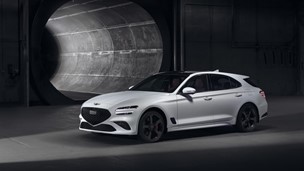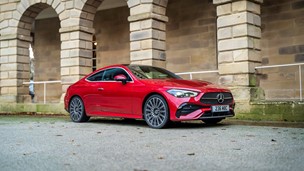We say Legendarily tough, the Hilux pick-up is also pretty basic and little fun to drive on the road. Avoid unless you need something rough and ready.Performance As mentioned, initial models were introduced with an underpowered 2.5-litre engine. That didn’t last long and Toyota replaced it with an uprated 2.5-litre 142bhp diesel unit. That’s enough to produce 253lb-ft of torque, a 0-62mph sprint time of 13.3 seconds and a top speed of 106mph – which should be more than enough for a pick-up.The other engine on offer is a 3.0-litre 169bhp diesel which [provides a little extra power with the automatic transmission, in manual there doesn’t seem to be that much point in the upgrade, other than a quicker sprint time of 12.1 seconds.The automatic clears 62mph in 12 seconds flat but also sees an increase in torque to 265lb-ft. It also brings a slightly faster top speed of 109mph.Emissions Emissions and fuel economy figures for the Toyota Hilux aren’t great but they’re not as bad as you might expect of such a big car and a pick-up at that. With the smaller engine – available only with a manual transmission – the Hilux returns 38.7mpg and emits 194g/km.With the larger 3.0-litre engine and a manual transmission, the Hilux returns 36.7mpg and emits 203g/km in CO2 while way out in front is the 3.0-litre with an automatic transmission, that unit returns just 32.9mpg and emits 227g/km in CO2.Driving The Hilux is stiff in terms of suspension and that’s so it can cope with varying terrain and still tow and carry heavy loads, the flip side of that is that it also handles well around corners. Unfortunately that also means that it can be slightly uncomfortable on the UK’s pock marked roads.If the rear load bay is unladen its tail can be quite slippery.Feel With the rattley ride about town and on UK roads, the Hilux can be a little a noisy, especially given its large diesel engines and intruding wind noise. That can make the cabin feel a little cheap and in truth the materials inside don’t quite live up to the standards of most Toyotas - instead it’s more robust than nice.That doesn’t mean the interior is flimsy though, the Hilux is robust, hard wearing and tough.Space There are two cab options available on the Hilux with a choice of either the Twin Cab two-seater or the five-seater Double Cab.As expected the larger Double Cab impacts on the load space in the rear however in the cabin itself there’s plenty of room and a number of storage options in and around the second row of seats. At the rear there’s a maximum load space of 2315mm with the single cab.Both the 3.0-litre diesel and 2.5-litre diesel have a braked maximum towing weight of 2,500kg.Equipment A pick-up may instil images of a fairly basic cabin without mod cons however the Hilux is well equipped. As standard all models come with a CD player with MP3 compatibility and a load sensing proportion system. Further up the range the Hilux adds cruise control, Toyota’s Touch and Go media system and Bluetooth connectivity.Price The Hilux is well priced and can cost anything from around £18,000 to around £24,000, making it competitive in the segment.Quality The Hilux may look like a normal road car from inside the cabin – particularly with the Double Cab bodystyle – but it’s a utility vehicle more than anything else, which is why its interior quality can let it down. There will be no issues in terms of reliability but some materials and surfaces may lack the refinement that most people are used to when it comes to normal cars, for example.Safety The Hilux is lacking in terms of standard airbags with just two available on all models however further up the range, three more can be added. Similarly, three-point seatbelts are only available on the Single Cab or in the front of the Double Cab. Passengers in the rear will need to make do with lap belts.Pros Like any Toyota, the Hilux is incredibly robust and solid so there should be no reliability issues. It’s also well priced, more powerful than ever and good across all surfaces.Cons The interior of the Hilux can feel a little unrefined, as can the ride. It’s more of a utility vehicle than standard SUVs, so if you can get away with a 4x4, we’d advise it.Alternatives Nissan Navara, Land Rover Defender



